Worship services, by their intention and design, escort us through faith-nourishing experiences and spiritual connection tools. There’s exquisite music, for example, plus stunning pageantry of processionals and recessionals, the beauty of sunlight filtering through windows, unfolding samples of God’s grace. Also, there’s scripture and inspiring sermons, all shared through the bonds of fellowship. Enriched worship services thrive here at RRCB on a well-guided mission.
On Sunday, August 20, 2017, I witnessed a new tool for me, a seed planted during that Sunday’s Holland Lecture. Dr. Rebecca Wells, Department of Neurology, Wake Forest University Baptist Medical Center, spoke on The Role of Meditation in the Holistic Practice of Medicine. The packed room of participants sat in stillness, like solar cells absorbing the radiant energy from Rebecca as she expertly poured out for us various meditation techniques, objectives and documented brain benefits from meditation practices. She mentioned that classes provide ways to learn to meditate, plus there are many books by professional meditation scholars on the subject. Two examples were mentioned, Dr. Herbert Benson and his pioneering book in 1975, The Relaxation Response, and Jon Kabat Zinn, Ph.D. author of many books on Mindfulness Meditation. Googling these two will uncover hundreds of other sources of interest and help.
This lecture brought back memories from my reading of Benson’s Relaxation Response book back in the 1980s, and I remember the underlining studies found, among other significant discoveries, that anyone can achieve the Relaxation Response. It is one of God’s gifts to humanity. One does not need to be a monk. Benson’s Relaxation Response hinges upon two basic steps, repetition, such as on a word, a prayer, or a thought; while also recognizing a second step will happen. That is, outside thoughts will occur, and when they do, we should just think or say, “Oh well,” and return to the repetition.
The Relaxation Response, when reached, becomes an automatic human response, opposite to the Flight-and-Fight response generated upon the presence of danger or stress. The Relaxation Responses’ impact upon the body is also the opposite, lower blood pressure, lower heart rate, lower respiration rate, and reduced stress. Dr. Herbert Benson presents his simple instructions on using the Relaxation Response in video. Benson’s, The Biology of Belief, is also on youtube:
During questions and comments following Rebecca’s presentation, someone asked, “what about meditation during worship services?” Meditation is certainly Biblical, Rebecca replied. Many popular translations have inclusions of meditations in the Old and New Testament verses including those of Jesus. One might question here, however, which definition of meditation applies to the Biblical examples, a contemplative, intellectual pondering meditation or a transcending relaxation response type of meditation. Or, perhaps both. Of course, we don’t know, but today we use the term meditation loosely to mean either. Yet the two are not the same.
When we contemplate Psalm 23, for example, we may intellectually wonder, ponder, and reflect upon its meaning. But, when we surrender intellectually to the verse and begin repeating a word or part of a verse, over and over, perhaps being mindful of the rhythm of our repetition matching our heart beat, while even considering intellectual meanings and backgrounds as outside thoughts to be left alone to drift away from the current focus, we may be reaching for Benson’s Relaxation Response, or other parallel types of meditation. This type transcends intellectual rational and is more of a spiritual exploration of the precious present moments. I believe this was Jesus’ realm of meditation, but not necessarily that of the disciples, at least not most of the time. This may be, however, an interesting point to intellectually contemplate, ponder, and discuss.
Rebecca mentioned that she has now revised some of her worship service practices by meditating during the service at quiet times. Meditating a prayer was mentioned as one example. I had never heard of purposely using a transcending type meditation during worship services, particularly in a Baptist church, but I found such very interesting. Now, I began looking forward to discovering some of those appropriate moments to try it. After this inspiring Holland Lecture was completed, and comments were shared with Rebecca, we headed over to the worship services, and little did I know that one of those appropriate moments would present itself to me very soon.
After a few minutes in the Sanctuary, Bob Gallagher’s previously, and magically selected, Introit began with the Choir singing a cappella in the Narthex, “Lord, I want to be a Christian.” As I listened to one of my favorites, a bell went off in my mind. “Of course,” I said, to myself. So, I closed my eyes and began repeating silently the mantra of some of those lovely verses from the Choir. Having practiced relaxation response meditation for years, I quickly slipped into a meditative mode, slowly repeating what I was hearing from the Choir. “Lord, I want to be,” (pause) “a Christian,” (pause) “in my heart.” And so on, over and over. It was quite natural, influential, and prayerful. It was our Introit (from Latin: introitus, “entrance”) as the opening of our liturgical worship services. It turned out to be a new engaging glimpse of faith for me, from a seed planted by Rebecca’s presentation. I hope you will try a similar meditation process during appropriate moments in worship services. Consider surrendering and meditating on a part of the services in harmony and engagement with worship. Then, please share with us your experiences, discoveries, and suggestions.
Thank you, Dr. Rebecca Wells, and the Holland Lectures. Thank you, Shepard-Holland Bible Study Class, for sponsoring these informative lectures. Maybe some of you too, sensed Henry Holland’s presence that Sunday. He, as most know, was the driving force behind these summer lecture series for years and co-founder of the Glimpses of Faith Committee. He was grinning.
Footnote: A Google of “meditation and brain changes” revealed 10,400,000 hits in 0.71 seconds.

Thanks, Page. Since I couldn’t get to the lectures this year, I especially appreciated your information.